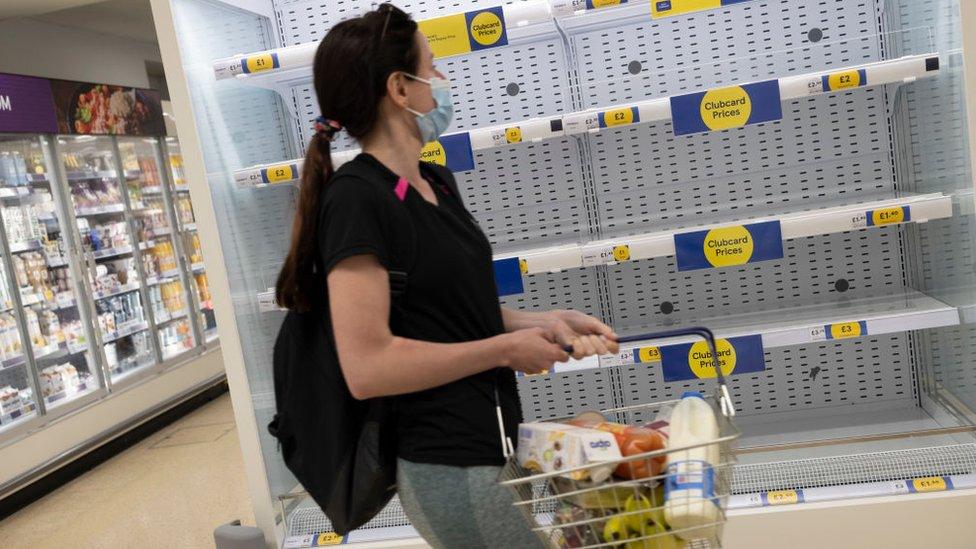Egg shortage: Farmers' warning as chicken feed price doubles
- Published
- comments
Farmer say a "desperate" egg shortage can be avoided if retailer agree to hike prices now
The UK could face an egg shortage if retailers do not start paying more, farmers have warned.
Wheat, a key ingredient in chicken feed, has almost doubled in price because Russia and Ukraine produce about 30% of the global supply.
Farmers are calling for a 40p increase in the cost of a dozen eggs to meet the rising costs.
"We're going to have a desperate egg shortage by Christmas if things don't change," said farmer David Sharples.
Mr Sharples, who farms in Denbighshire, said rising feed cost meant there was little to no profit margin for farmers.
"We're really struggling, and we really do need a price increase of nigh on 40p per dozen eggs," he said.
'It's like going up against a brick wall'
"Our feed has really gone up in price nearly 50%, and feed constitutes about 60-70% of the egg production costs," said Mr Sharples, who owns Clyttir Farm in Llanbedr DC, Ruthin.
He said UK retailers were giving nothing back to farmers, and the only thing they understood would be a "food shortage".
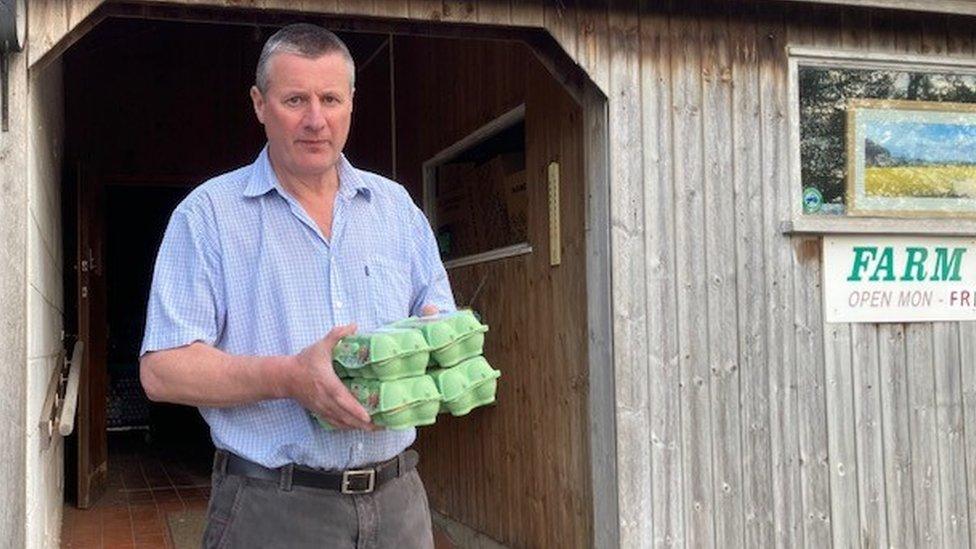
David Sharples says farmers are looking to pre-empt an egg shortage by agreeing a price rise with retailers
"We're just fighting and fighting, it's like going up against a brick wall that we're not getting anything back from," added Mr Sharples.
"The only thing that they understand is food shortage, that's the only thing they act upon, and we're trying to pre-empt that."
A spokesperson for Sainsbury's, the only large retailer to respond to the BBC's request for comment, said: "We are in close contact with all our suppliers and understand that many are facing unprecedented cost challenges throughout their supply chains.
"We are working with our egg suppliers to make sure they receive a price that reflects the increasing costs they are facing. This is based on real time factors, such as the cost of feed."
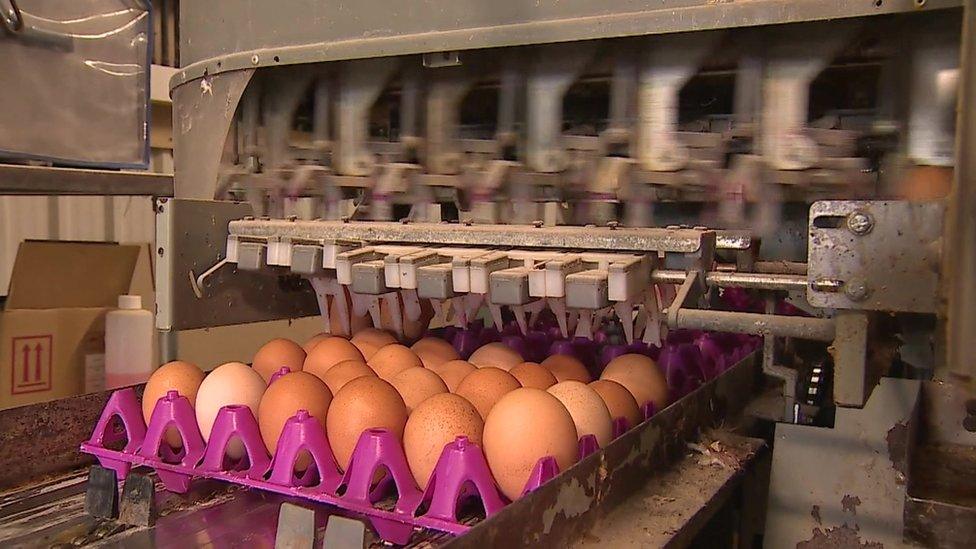
Pembrokeshire farmer Gareth Curtis said the rising cost of producing the eggs had not been reflected by the price, leaving farmers to bear the brunt.
'No margin whatsoever'
"The feed price has gone up, around 18 months ago it was around the £250 a tonne mark, but over the last six months or so it's gone up to around £400 a tonne," said Mr Curtis, who runs Pembrokeshire Farm Eggs, near Tenby, which keeps 64,000 free range chickens.
"The cost of feed is virtually what the eggs are being sold for, so there's virtually no margin in it whatsoever, some are almost at a loss.
"Every £10 the feed rises, the eggs have to go up a penny, and that hasn't happened. Nobody can sustain these sort of costs indefinitely, it needs to be passed on as soon as possible."
Andrew Joret, chairman of the British Egg Industry Council, said the "skyrocketing" price of chicken feed, along with rising energy costs, was having a "really, really severe" impact on farmers.
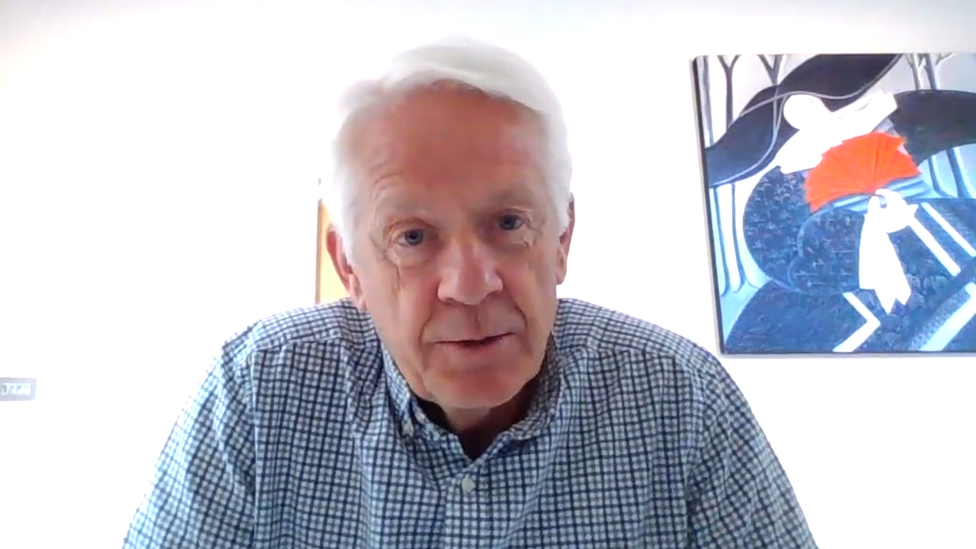
"Even if they do have to go up a little bit in price, they'll still be excellent value," said Mr Joret
Mr Joret said challenges during the Covid pandemic, followed by this winter's avian flu outbreak, had been compounded by war in Ukraine and a subsequent rise in feed price.
He added that the purchase of day-old chicks decreased, which he has called "majorly concerning".
"This doesn't imply a shortage in eggs tomorrow, but it does imply the national flock will go down in the future, and that is a major concern.
"Producers need confidence that they are going to be able to produce and make money, and not lose money, or even go bankrupt which would be the worst case scenario.
"Even with a small cost increase eggs will still remain exceptionally good value. You can make a meal for a family with eggs, and it's much much cheaper than any other form of protein."
UK retailers Tesco, Asda, Morrisons, Aldi and Lidl have all been asked to comment.

WILD MOUNTAINS OF SNOWDONIA: Five farming families open their gates and share their lives
BROTHERS IN DANCE: The remarkable duo at the forefront of UK dance

Related topics
- Published21 March 2022
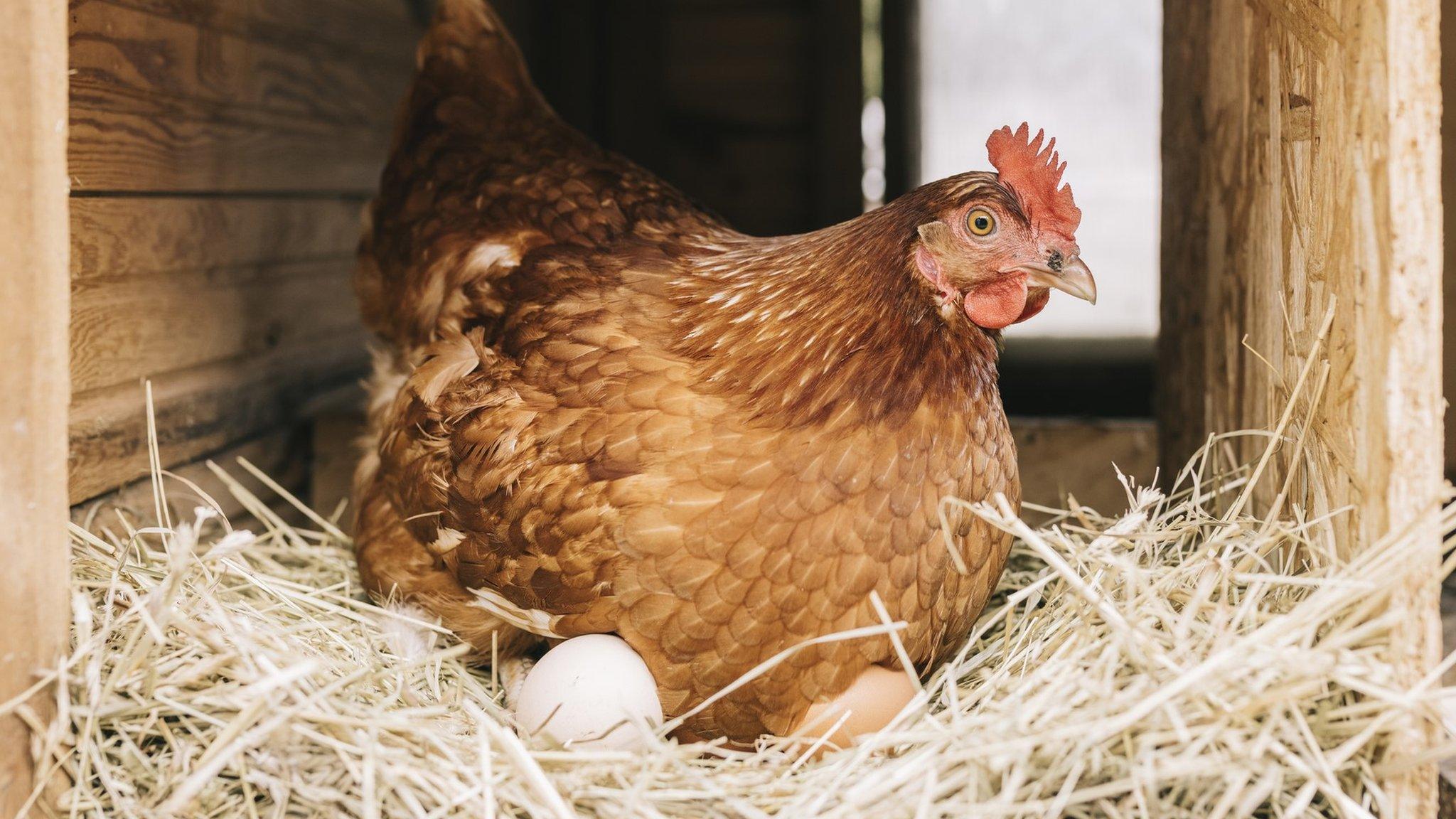
- Published7 March 2022
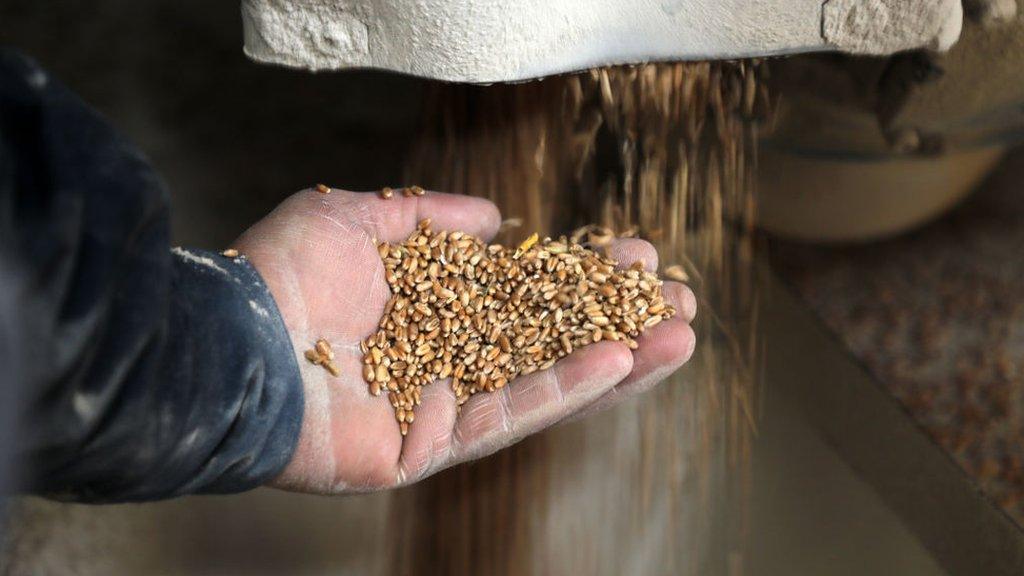
- Published10 September 2021
